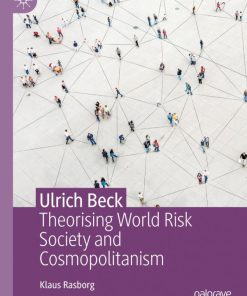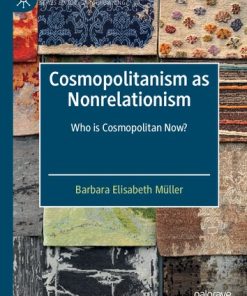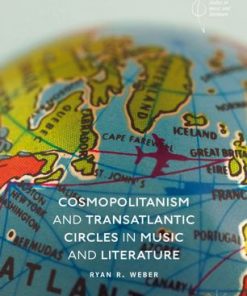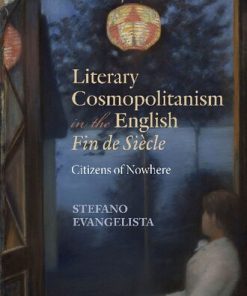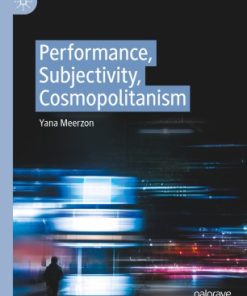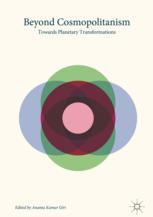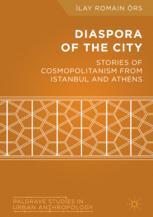(EBook PDF) Swami Vivekananda’s Vedāntic Cosmopolitanism 1st edition by Swami Medhananda 0197624480 9780197624487 full chapters
$50.00 Original price was: $50.00.$25.00Current price is: $25.00.
Swami Vivekananda’s Vedāntic Cosmopolitanism 1st edition by Swami Medhananda – Ebook PDF Instant Download/DeliveryISBN: 0197624480, 9780197624487
Full download Swami Vivekananda’s Vedāntic Cosmopolitanism 1st edition after payment.
Product details:
ISBN-10 : 0197624480
ISBN-13 : 9780197624487
Author : Swami Medhananda
Swami Vivekananda, the nineteenth-century Hindu monk who introduced Vedanta to the West, is undoubtedly one of modern India’s most influential philosophers. Unfortunately, his philosophy has too often been interpreted through reductive hermeneutic lenses. Typically, scholars have viewed him either as a modern-day exponent of Sankara’s Advaita Vedanta or as a “Neo-Vedantin” influenced more by Western ideas than indigenous Indian traditions. In Swami Vivekananda’s Vedāntic Cosmopolitanism, Swami Medhananda rejects these prevailing approaches to offer a new interpretation of Vivekananda’s philosophy, highlighting its originality, contemporary relevance, and cross-cultural significance.
Swami Vivekananda’s Vedāntic Cosmopolitanism 1st Table of contents:
I. Integral Advaita
1. The Making of an Integral Advaitin: Vivekananda’s Intellectual and Spiritual Tutelage under Sri Ramakrishna
1. 1878 to 1884: From Brāhmo Theism to Advaita Vedānta
2. 1884 to 1886: From Acosmic Advaita to Integral Advaita
3. Ramakrishna’s Scriptural Support for Integral Advaita
4. Ramakrishna’s Legacy: From Narendranāth Datta to Swami Vivekananda
2. “The Deification of the World”: The Metaphysics and Ethics of Oneness in Vivekananda’s Integral Advaita
1. Vivekananda’s Two-Pronged Hermeneutic Method
2. The Impersonal-Personal God
3. The World as a Real Manifestation of God
4. The Divinity of the Soul
5. Practical Vedānta: The Ethics of Oneness
6. The Four Yogas as Direct Paths to Liberation
7. Harmonizing the Vedāntic Schools of Dvaita, Viśiṣṭādvaita, and Advaita
3. Grounding Religious Cosmopolitanism: Three Phases in the Evolution of Vivekananda’s Doctrine of the Harmony of Religions
1. Doctrinal Truth and Salvific Efficacy: Two Ways of Conceptualizing the Threefold Typology
2. The Early Phase (September 1893 to March 1894): Salvific and Doctrinal Pluralism and the Ideal of a “Universal Religion”
3. The Middle Phase (September 1894 to May 1895): A Vedāntic Universal Religion Based on the Three Stages of Dvaita, Viśiṣṭādvaita, and Advaita
4. The Final Phase (Late 1895 to 1901): A Vedāntic Universal Religion Based on the Four Yogas
5. Vivekananda on the Definition of Religion, Degrees of Salvific Efficacy, and the Problem of Conflicting Religious Truth-Claims
6. The Problem of Non-Substantialist Buddhism: Addressing Ninian Smart’s Objection
7. The Contemporary Relevance of Vivekananda’s Vedāntic Universal Religion
II. The Experiential Basis of Religion
4. “The Science of Religion”: Vivekananda’s Critique of Scientism and His Defense of the Scientific Credentials of Religion
1. Vivekananda’s Appeal to Spiritual Experience as a Response to the Global Crisis of Religious Belief
2. Vivekananda’s Critique of Scientism
3. Vivekananda’s Defense of a Wide Empiricism
5. Perceiving God: A Vivekanandan Argument for the Epistemic Value of Supersensuous Perception
1. Perception and Testimony in Traditional Indian Pramāṇa Epistemology
2. Reconstructing and Refining Vivekananda’s Argument
3. Premises 1 and 2: Perceiving Ultimate Reality
4. Premise 3: Perception as Epistemic Justification
5. Premise 6: Perceptual Testimony as Epistemic Justification
6. Premises 4 and 7: Absence of Rebutting and Undercutting Defeaters
6. Addressing Philosophical Challenges to Supersensuous Perception
1. The Crosscheckability Objection to Premise 2
2. The Speckled Hen Objection to Premise 3
3. The Gullibility Objection to Premise 6
4. Objections to Premises 4 and 7: The Conflicting Claims Objection and Kumārila’s Criticisms of Yogic Perception and Testimony
5. Anantanand Rambachan’s Criticisms of Vivekananda’s Views on Spiritual Experience
III. Faith and Reason
7. From Agnosticism to “Metagnosticism”: Vivekananda’s Kantian-Vedāntic Critique of Theological Reason
1. The Indian Background: Nyāya, Śaṅkara, and Ramakrishna
2. Can We Have Faith in an Unknowable God? Kant, Hamilton, Spencer, and Mill
3. Vivekananda’s Cosmopolitan Views on the Powers and Limits of Reason
4. Vivekananda on Arguments for God’s Existence
5. Vivekananda’s Rational Response to the Problem of Evil
8. The Will to Realize: Vivekananda’s Doxastic Involuntarism and His Three-Rung Ladder of Religious Faith
1. Evidentialism versus the Will to Believe: Clifford, Huxley, and James
2. Vivekananda’s Vedāntic Intervention in Late Nineteenth-Century Debates about Faith
3. Stage 1: Faith as Sub-Doxastic Intellectual Assent
4. Stage 2: Faith as Belief
5. Stage 3: Faith as Self-Authenticating Realization
6. Vivekananda’s Relevance to Contemporary Debates about Faith
IV. Consciousness
9. Panentheistic Cosmopsychism: Vivekananda’s Sāṃkhya-Vedāntic Solution to the Hard Problem of Consciousness
1. Contemporary Analytic Responses to the Hard Problem of Consciousness
2. Late Nineteenth-Century Western Views on Consciousness
3. Ramakrishna’s Mystically Grounded Panentheistic Cosmopsychism
4. Vivekananda’s Provisional Sāṃkhyan Mind-Consciousness Dualism
5. Vivekananda’s Sāṃkhya-Vedāntic Metaphysics of Panentheistic Cosmopsychism
10. Vivekananda’s Justification of Panentheistic Cosmopsychism: Involution, Mystical Experience, and Grounding by Self-Limitation
1. Reconstructing Vivekananda’s Argument for Panentheistic Cosmopsychism
2. Refining and Developing Vivekananda’s Argument
3. Grounding by Self-Limitation and the Individuation Problem
4. Addressing Objections to Vivekananda’s Panentheistic Cosmopsychism
5. Which Advaita? Bringing Vivekananda into Dialogue with Miri Albahari
People also search for Swami Vivekananda’s Vedāntic Cosmopolitanism 1st:
swami vivekananda beliefs
vivekananda’s vedantic cosmopolitanism
swami vivekananda’s vedantism
swami vivekananda’s vedantic cosmopolitanism
swami vivekananda jesus
Tags:
Swami Vivekananda,Vedāntic Cosmopolitanism,Swami Medhananda
You may also like…
Politics & Philosophy - Sociology
Politics & Philosophy - Politics
Poetry - American Poetry
Cosmopolitanism and Transatlantic Circles in Music and Literature 1st ed. Edition Ryan R. Weber
Politics & Philosophy - Others
Literary Cosmopolitanism in the English Fin de Siecle: Citizens of Nowhere 1st Edition
Arts - Performing Arts
Politics & Philosophy
History - American Studies





